Finding the right country for forex trading can be more than just comparing taxes or broker choices. It’s also about how day-to-day life aligns with your trading style, how strict local regulations are, and how easy it is to tap into reliable financial services. But: Let’s be honest – tax rates are one of the most important things to consider when choosing a destination to live as a forex trader. This article by WR Trading will discuss the top 10 best countries for forex traders to live in and what makes them stand out.
Key Perks of the 10 Best Countries to Live In for Forex Traders
- United Arab Emirates: Zero personal income tax in designated zones
- Singapore: Often low or no tax for casual traders
- Switzerland: Political and economic stability
- Cyprus: Low personal and corporate taxes
- Malta: Tax incentives for non-domiciled residents in an English-speaking setting
- United States: Vast market variety and innovative trading platforms
- New Zealand: Stable economy with a high standard of living
- Hong Kong: Generally no capital gains tax for part-time traders
- United Kingdom: Well-established finance hub with strong oversight
- Australia: A commodity-driven currency
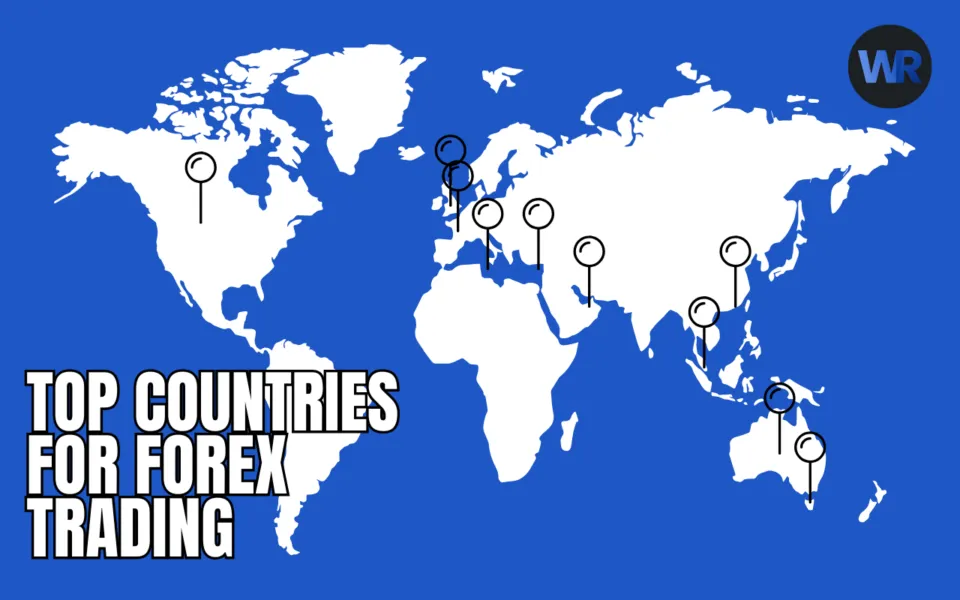
(Never Trade In Uncertainty Again – Join The WR Trading Mentorship)
Lowest Taxes: Best Countries for Forex Traders
Before we dive into daily life and trading environments, let’s look at the numbers. The table below outlines the personal tax rates forex traders can expect in each country – with many offering 0% tax under the right circumstances. Whether you’re trading casually or as a business, understanding local tax policy can be the difference between growing your capital or watching it shrink.
| Country | Tax Rate | Good to know |
|---|---|---|
| United Arab Emirates | 0% | No personal income tax Forex earnings are not taxed |
| Singapore | 0–22% | Professional trading may be taxed as income, otherwise not |
| Switzerland | 0–40% | Capital gains usually tax-free Professional traders taxed as income |
| Cyprus | 0% | Forex gains generally not taxed |
| United States | 10–37% | Spot forex taxed as ordinary income FX Futures taxed 60/40 capital gains |
| Malta | 0% | Non-domiciled residents not taxed on foreign capital gains, even if remitted |
| New Zealand | 10,5 – 39% | Forex profits treated as income and taxed progressively |
| Hong Kong | 0% | No capital gains tax Business-like trading may be taxed (7,5%+) |
| United Kingdom | 0–45% | Spread betting is tax-free Other trading taxed as CGT or income |
| Australia | 0–45% | Forex gains taxed under capital gains or income tax rules |
Where to Settle for Forex Success: 10 Popular Destinations
Now we’ll explore what these countries offer in terms of daily life and trading environment. You’ll get a sense of how local laws treat forex earnings, where you might find a supportive network of brokers, and what day-to-day living in each place typically looks like. By the end, you should have enough context to weigh your options and decide which location might best suit your trading goals and lifestyle preferences.
United Arab Emirates
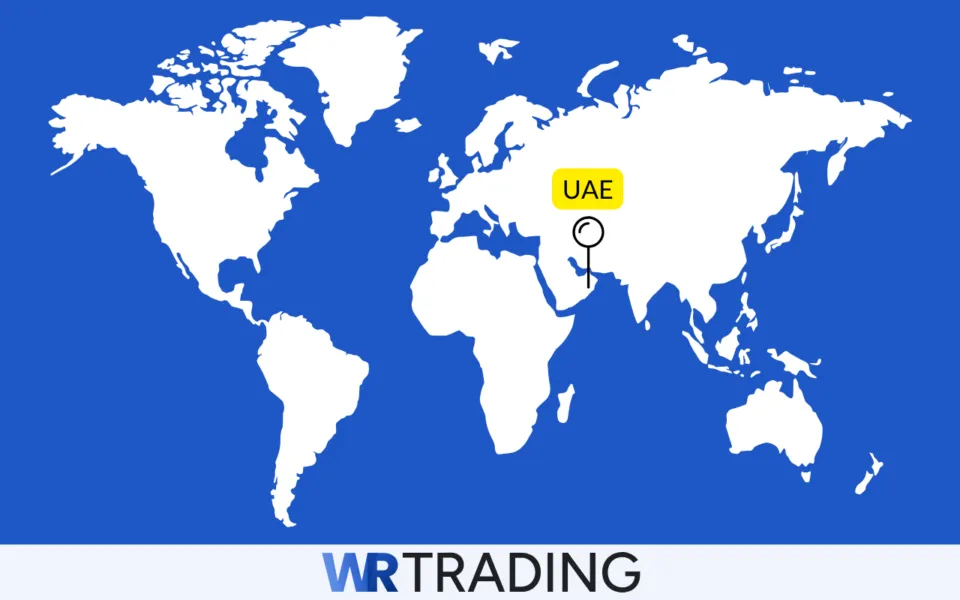
The UAE, mainly Dubai and Abu Dhabi, attracts many professionals through modern amenities and a business-friendly approach. Free zones often provide zero personal income tax, and the region’s international community offers ample networking opportunities. Skyscrapers, large shopping centers, and luxury residential areas characterize these emerging finance hubs.
Staying in a free zone usually requires a valid residency or visa arrangement. Corporate tax rates can apply in certain cases, and value-added tax (VAT) is in place on goods and services. The summer heat can reach extreme levels, making outdoor activities challenging, and real estate in premium districts can be costly. However, many see the combination of tax benefits, global flight connections, and lifestyle perks as a strong draw.
Pros
- Zero personal income tax in certain free zones
- Modern cities with comfortable living amenities
- Rapidly developing financial districts in Dubai and Abu Dhabi
- Expansive networking possibilities with an international crowd
- Central location for travel to Europe, Asia, and Africa
Cons
- Must keep valid residency status to maintain tax advantages
- Extremely high temperatures in summer months
- Cultural differences may be an adjustment for some expats
- High real estate costs in popular neighborhoods
- Some financial services outside main cities remain underdeveloped
Singapore
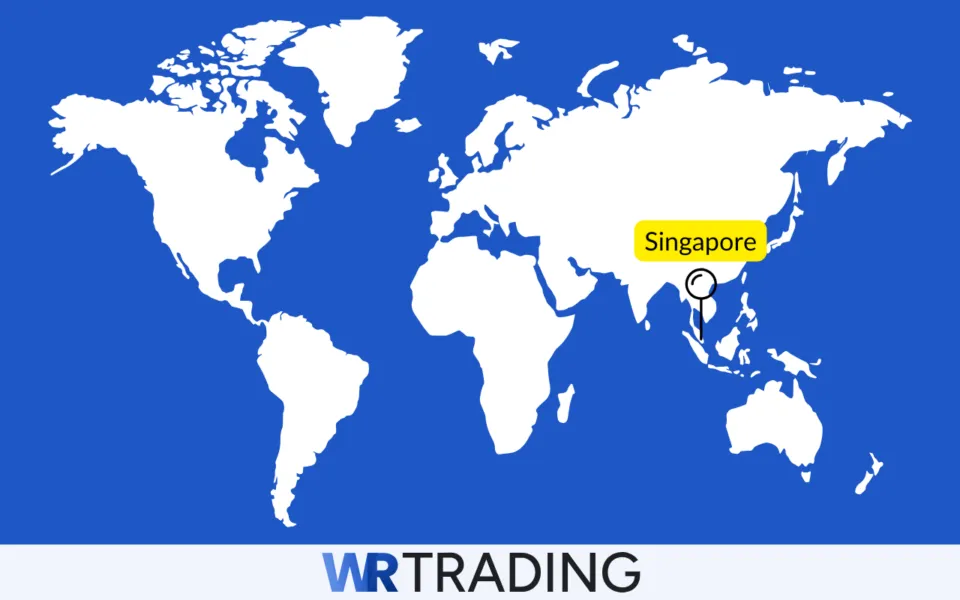
Singapore’s financial district is home to numerous global banks and brokers that offer forex services. The Monetary Authority of Singapore (MAS) maintains a clear regulatory framework, which helps traders feel more secure. Public transportation is efficient, and English is widely spoken, making day-to-day life relatively straightforward.
Most traders who stick to casual or part-time forex activity may avoid major taxes on capital gains, but anyone treating it like a full-time business can face progressively higher income tax brackets. It’s a good idea to confirm how the authorities view your activity because classification can hinge on factors like trade volume and frequency. Property costs in central locations can be high, but many professionals consider the city’s cleanliness, modern infrastructure, and proximity to other Asian markets well worth the price.
Pros
- Clear guidelines from the Monetary Authority of Singapore
- Strategic location for trading Asian currencies
- Convenient and organized city layout
- English is commonly used in Singapore
- Relatively cheap to live in compared to Western countries
Cons
- Defining capital vs. income gains can be tricky for some traders
- Density can mean limited personal space
- Tax treatment can change if your trading is viewed as professional
- Humid climate may not suit everyone all year
- Location is not ideal due to the time zone if you mainly trade European and North American markets
(Never Trade In Uncertainty Again – Join The WR Trading Mentorship)
Switzerland
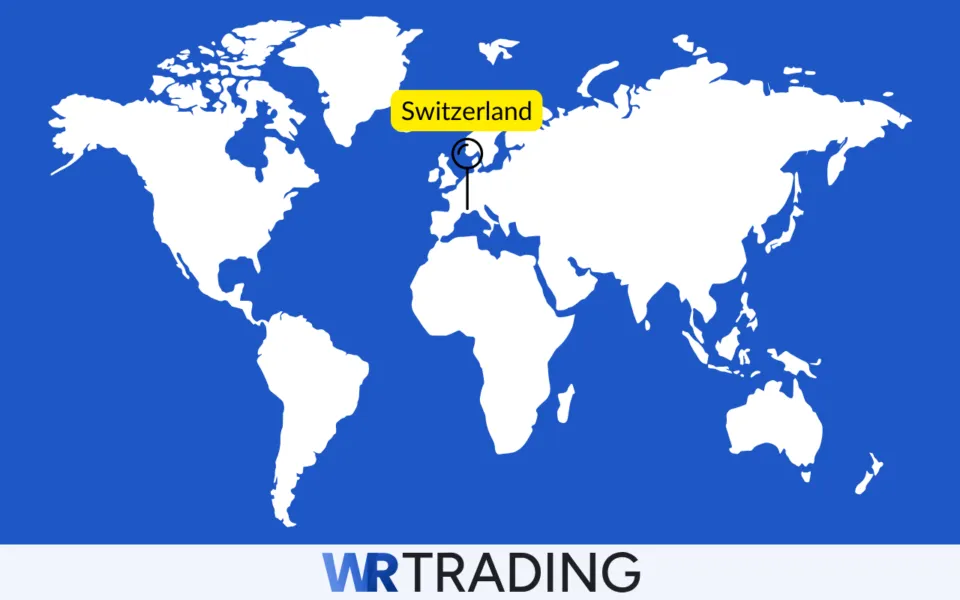
Switzerland is known for its stable financial environment and longstanding banking traditions. Zurich and Geneva host an array of international financial institutions, which makes connecting with a wide range of market professionals easier. Public services like healthcare and transportation rank among the best, though daily costs can match that level of quality.
Tax rules revolve around whether you’re a private investor or a professional trader. Private investors sometimes avoid capital gains tax if they limit trade frequency, avoid high leverage, and show another main source of income. Traders who exceed certain benchmarks might be classified as professional and taxed under ordinary income rates. Differences across cantons add another layer of complexity, so seeking local advice can help you maximize any potential exemptions.
Pros
- Global reputation for banking and steady governance
- Potential for zero capital gains tax if classed as a private investor
- High-quality public infrastructure and healthcare
- Safe country to live in with options to visit nearby countries
- Major financial hubs with access to global institutions
Cons
- Living expenses in Zurich or Geneva can be extremely high
- Varying rules by canton can create extra complexity
- Showing you’re a private investor can be tough if you trade frequently
- Formal culture might require adjustments for some newcomers
- Multiple local languages add to communication challenges
Cyprus
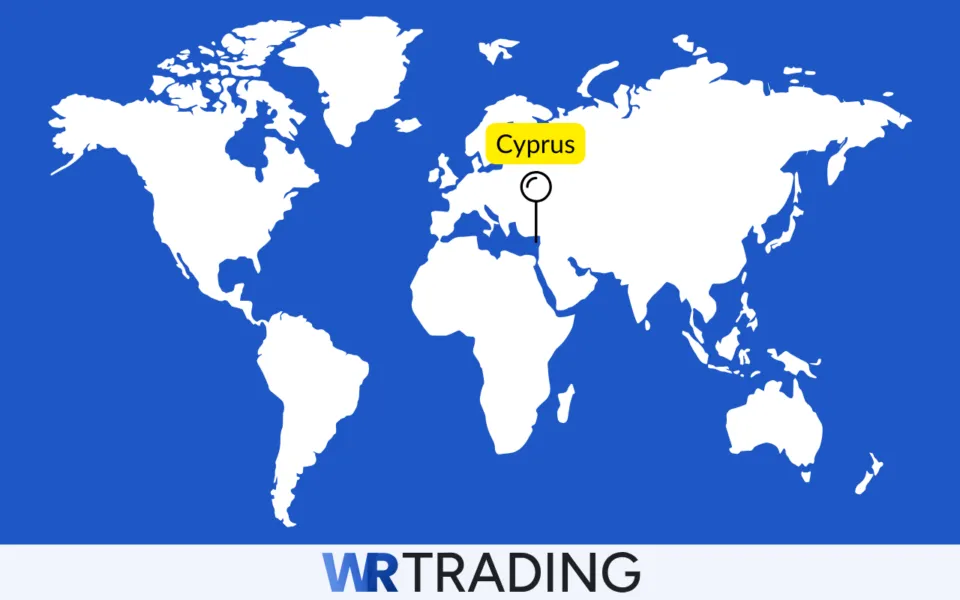
Cyprus is known for its welcoming stance toward forex businesses, with many brokers regulated by the Cyprus Securities and Exchange Commission (CySEC). The local climate and relaxed pace of life appeal to those who want a break from bigger financial centers. English is commonly used in business, making the transition smoother for people moving from English-speaking countries.
Tax rules in Cyprus are often favorable for both individuals and corporations. Reduced or exempted rates on specific types of investment gains have encouraged multiple brokerage firms to establish a presence on the island. Regular workshops and training sessions organized by these brokers let traders expand their skill sets in a more laid-back environment. Being a smaller economy, Cyprus may not have the same range of specialized professional services as larger nations, but it remains a strong base for forex traders.
Pros
- Many forex brokers and services under CySEC
- Generally lower personal and corporate taxes
- Warm weather and easier pace of life
- English is widely spoken
- Frequent forex events hosted by local brokers
Cons
- Smaller economy with fewer major financial institutions
- Seasonal tourism can push up prices and congestion
- Low level of urban development
- Specialized financial services may be limited
- Not always well-connected by direct flights to remote regions
Malta
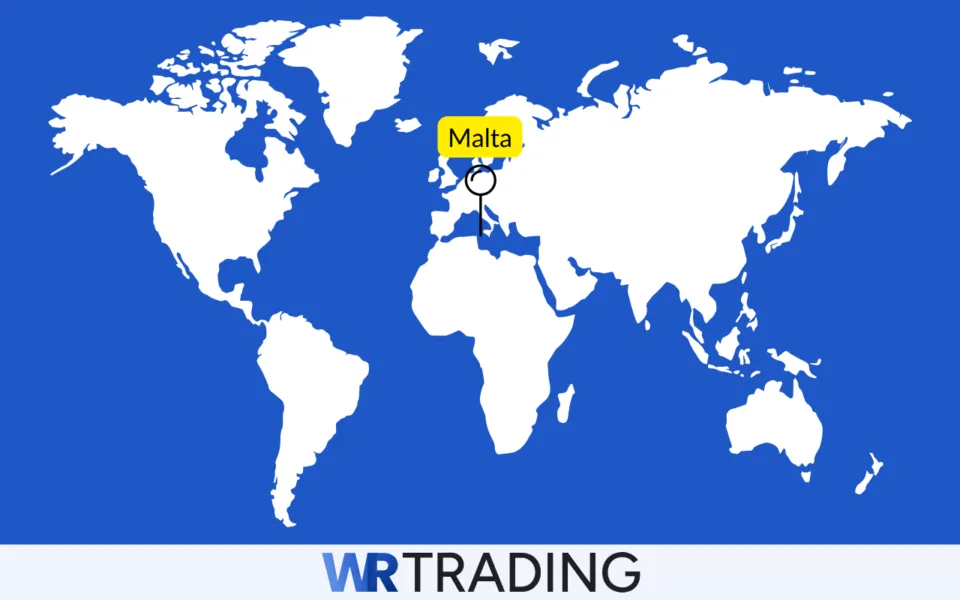
Malta combines a Mediterranean atmosphere with a financial hub designed to encourage foreign investment. Some individuals benefit from non-domiciled residency, which can reduce taxes on overseas income. The island’s small size makes it simple to form close-knit connections, and English is an official language, which simplifies day-to-day interactions and official processes.
Tax benefits depend on meeting residency criteria and ensuring that forex activities fall within the guidelines set out by local authorities. Malta’s property market can be competitive, especially in popular coastal areas. The island is a short flight from various European financial centers, though it doesn’t match the scale of bigger economies in terms of specialized services or major conferences. Many new arrivals appreciate the sense of community and moderate climate.
Pros
- Tax advantages for certain non-domiciled residents
- English is an official language
- Scenic Mediterranean location with nice weather
- Quick flights to European cities for business trips
- Great trading community that can lead to networking
Cons
- Limited industry diversity beyond finance, tourism, and gaming
- Public transport can be packed during peak travel times
- Housing prices have climbed in high-demand areas
- Fewer specialized healthcare or business services than larger nations
- Geographical constraints may feel limiting to some newcomers
United States
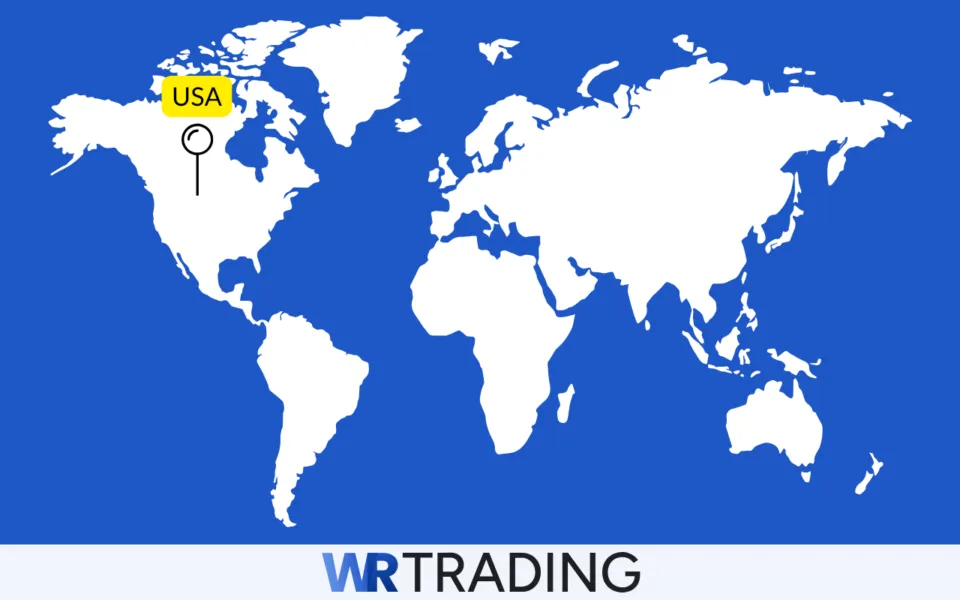
The United States hosts a great range of trading options, from spot forex to futures and options. Finance hubs like New York and Chicago are known for advanced trading technologies and frequent industry events. Traders like the choices in brokers and software, and they have the option to attend seminars or expos that cater to various skill levels. This broad ecosystem can spark innovation in platforms, charting tools, and analytical methods.
Taxes here are more complex, so we recommend going to a tax professional. Section 988 often applies to spot forex, treating gains as ordinary income. Some traders file an election for Section 1256 if they focus on currency futures and options, which can yield a 60/40 split between long and short-term gains. State taxes might layer on additional obligations, so detailed record-keeping and professional advice go a long way in avoiding mistakes. Big cities can be expensive, but many suburban areas or smaller cities still provide solid internet connectivity and easy access to broker services.
Pros
- Diverse broker options and competitive platforms
- Frequent conferences, expos, and seminars
- Large community of traders and resources online and offline
- Regulated by agencies like CFTC and NFA
- Advanced analytics, charting tools, and software available on top US platforms
Cons
- Complex tax framework (Section 988 vs. 1256)
- Major cities like New York can have very high living costs
- Requirements differ by state, adding extra tax complexity
- Foreigners may find adapting to the American lifestyle difficult
- The main method of transport is cars as public transport is not good
(Never Trade In Uncertainty Again – Join The WR Trading Mentorship)
New Zealand
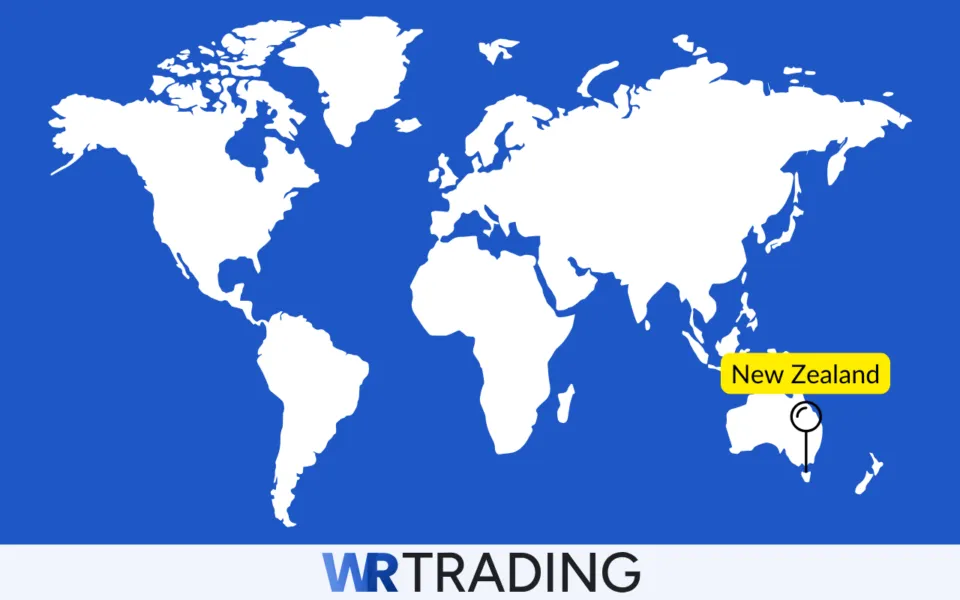
New Zealand offers a calmer lifestyle, with Auckland and Wellington serving as the main urban centers for finance and trading. People who move here often value the blend of modern infrastructure and a laid-back culture, which can help counterbalance the ups and downs of forex markets. Outdoor activities in the country’s scenic landscapes also appeal to many.
Taxes depend on how the government classifies a trader. A casual investor might be exempt from heavy taxes on gains, while an individual viewed as running a business could see profits taxed as ordinary income. Keeping records that clarify your frequency, leverage, and capital is key to determining your status. This location is somewhat distant from other financial hubs, making travel to major trading events a longer process, but many say the lifestyle benefits are worth it.
Pros
- Straightforward government processes and a stable economy
- Great work-life balance amid natural beauty
- Clear distinction between casual investors and business traders
- Welcoming communities with reliable infrastructure
- Calmer urban environments that can reduce stress
Cons
- Long travel times to other countries
- Smaller scale finance community means fewer large events
- Frequent traders face standard income tax rates
- Time-zone gaps make real-time collaboration with major markets tricky
- Variable weather across islands might disrupt regular routines
Hong Kong
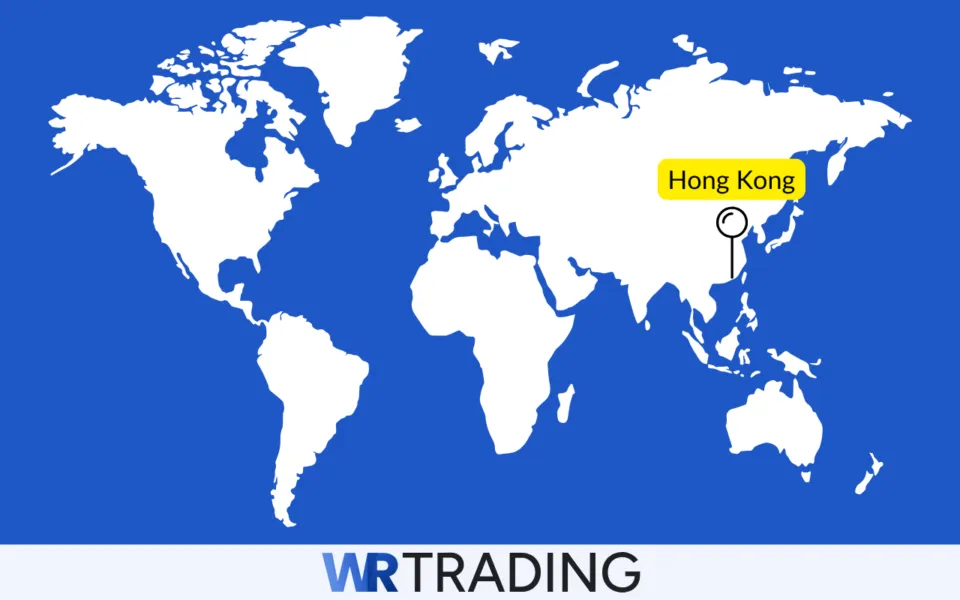
Hong Kong is well-known for its position as a large finance hub in Asia. Many multinational banks and brokers operate there, which creates plenty of opportunities for currency traders. Its close proximity to mainland China often gives traders unique access to developments in Chinese markets and cross-border investments. Public transportation is comprehensive and reliable, so commuting is relatively efficient.
Local tax regulations typically do not impose capital gains tax on casual traders, though frequent or high-volume traders could be treated as running a business and be taxed on income. Rent and property expenses rank among the world’s highest, but many choose to live farther from the central districts to cut costs. Ongoing finance-related expos and gatherings give traders the chance to network and keep track of market changes in the region.
Pros
- Major financial center with broad liquidity
- Usually no tax on capital gains for non-professional traders
- Strong banking and brokerage presence
- Well-organized public transport across the city
- Access to Chinese markets and Asian trading opportunities
Cons
- High real estate prices in central districts
- Classification as a business could lead to income taxation
- Policy changes can introduce new uncertainties
- Dense population can feel overwhelming
- Culture is much different from the Western lifestyle
United Kingdom
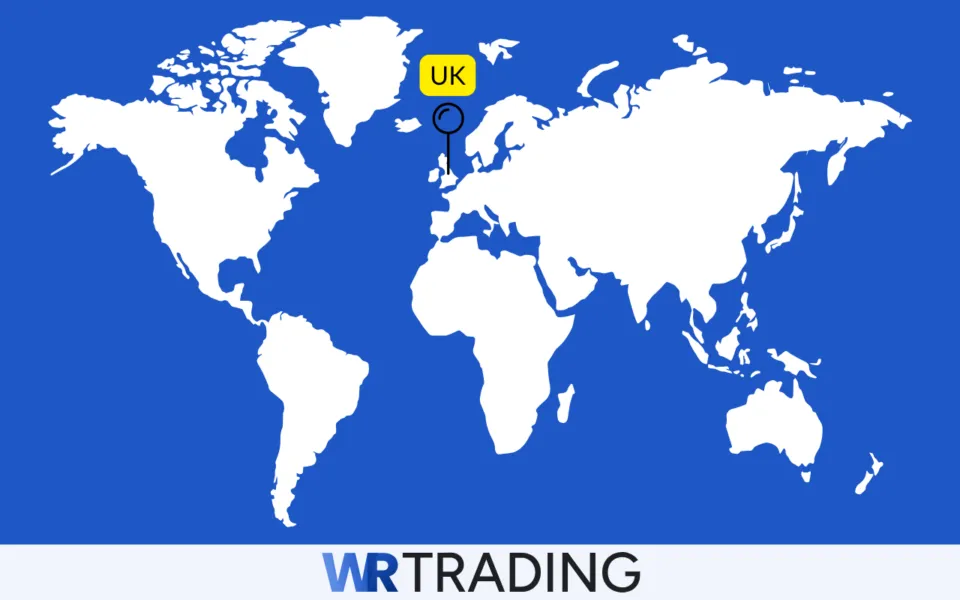
The UK has a long track record in finance, especially in and around London. Traders benefit from a large network of brokers, banks, and fintech firms, which means convenient access to educational seminars and professional advice. Many traders find it helpful to connect with others who share insights, discuss strategy, and stay updated on evolving trends. The overall environment can be fast-paced, so newcomers often appreciate having easy ways to build knowledge and confidence.
Forex earnings in the UK usually fall under Capital Gains Tax (CGT) rules, and there’s an annual CGT allowance (commonly around £3,000, though that can change). Amounts over the allowance might be taxed at 10% (basic rate) or 20% (higher rate), depending on total income. Some traders explore spread betting, which can be free of tax if it’s considered purely recreational and not your main job. If you end up doing it frequently or as a significant income source, you could lose that exemption. Checking official guidance from HMRC and discussing with a tax advisor is recommended.
Pros
- Major global financial center with many broker options
- Wide selection of seminars and networking events
- Easy access to advanced trading tools and analytics
- Brokers are regulated by the Financial Conduct Authority (FCA) for trader protection
- Possibility of spread betting exemptions under certain conditions
Cons
- Higher living costs in key cities like London
- CGT rates and allowances may change with new regulations
- Difficult to find accommodation in larger cities
- The weather might not appeal to everyone
- Frequent trading can change tax classification
Australia
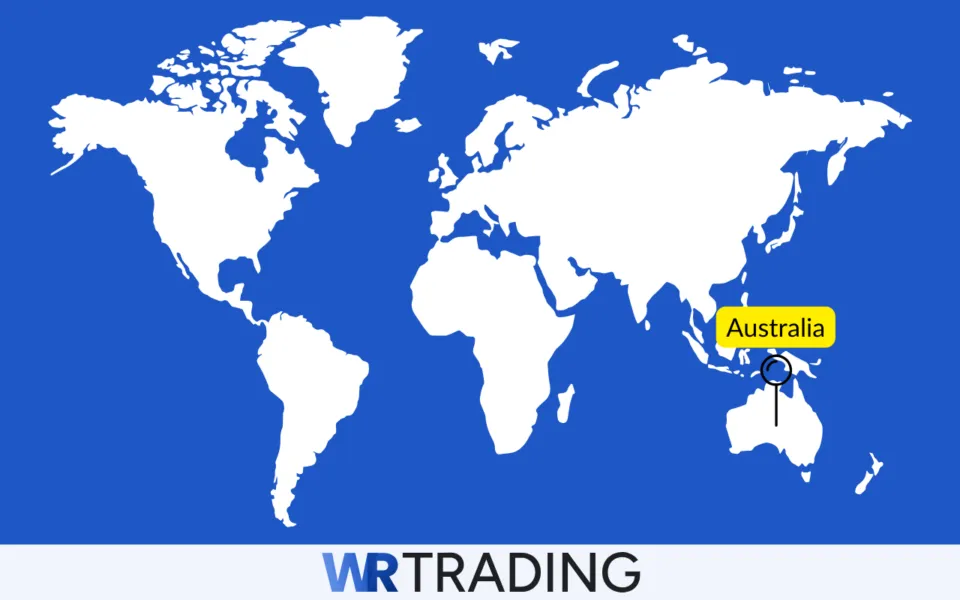
Australia is known for clear financial oversight, enforced by the Australian Securities and Investments Commission (ASIC). Cities like Sydney and Melbourne combine modern urban living with opportunities to interact with local brokers and other traders. The Australian dollar often reflects the country’s commodity-driven economy, giving traders extra chances to benefit from shifts in mining and agricultural sectors.
Forex gains generally fall under capital gains for non-professional traders, although tax rates vary based on overall income. A short holding period on forex positions means most traders won’t qualify for long-term investment discounts, but certain deductions for software, data feeds, and related expenses may reduce taxable amounts. The distance from European and North American markets sometimes complicates in-person event attendance, yet many people enjoy the warm climate and laid-back lifestyle enough to make it home.
Pros
- Well-regarded regulatory environment by ASIC
- Commodity-influenced currency can open more trading angles
- Possible deductions for software or subscription costs
- Active network of local brokers and trading communities
- Pleasant climate and great living conditions
Cons
- Travel to global finance centers can be lengthy and expensive
- Time-zone differences may affect real-time trading
- Urban areas like Sydney can have high living costs
- Fewer large-scale conferences than in places like London or the US
- Overlapping market hours can change seasonally
(Never Trade In Uncertainty Again – Join The WR Trading Mentorship)
How Is the Forex Market Regulated?
National and regional bodies oversee forex trading to maintain fair trading practices, protect individual traders, and keep financial systems stable. Some of the top reputable authorities include the Financial Conduct Authority (FCA) in the UK, the Commodity Futures Trading Commission (CFTC) in the US, the Australian Securities and Investments Commission (ASIC), and the Cyprus Securities and Exchange Commission (CySEC). These organizations set guidelines on licensing, capital requirements, and how client funds must be held, among other rules.
Each authority takes a slightly different approach, but their goals are similar: ensure brokers have enough funds to manage risks, follow transparent practices, and maintain a level playing field. Reliable brokers usually share information on their license and regulatory status. One way traders can verify they’re dealing with an approved firm is to check a broker’s credentials through the appropriate regulator’s website.
In Which Country Forex Trading Is Not Legal?
Some governments place restrictions on forex trading, and in rare situations, it’s completely banned. This might be due to concerns over financial risk, a desire to prevent currency outflows, or strict capital controls. A few nations with heavy restrictions, including North Korea and Iran, limit private citizens’ engagement with international markets.
Other countries like China and Russia may not forbid trading outright, yet their regulations could make it nearly difficult for retail traders to participate. For instance, they could block offshore broker websites or require licenses that are unrealistic for small-scale traders.
It’s vital to research local rules before attempting to trade since breaking them can bring serious penalties.
Conclusion
Choosing the best country for Forex Trading means aligning your personal goals with a location that actively supports your financial growth. Lifestyle preferences, family obligations, cost of living, and long-term career goals all play a part alongside the tax question. Some traders look for a global finance hub that offers meetups and seminars, while others prefer quieter places where they can work remotely with steady internet connections and flexible schedules.
Taxes are also a significant consideration, and each of the countries covered above has different guidelines that might affect the after-tax profits of a trading account. Several of the countries we’ve reviewed – including the UAE, Cyprus, Malta, and Hong Kong – offer zero or extremely low tax burdens for forex traders, especially if you meet certain residency or classification criteria.
Consulting professional advisors in tax and immigration matters can save time and lower risks, especially if you plan to settle down or establish a business in a new location. Once you match your personal needs with the environment that supports your trading activities, you can position yourself for a more comfortable and potentially profitable forex career.
(Never Trade In Uncertainty Again – Join The WR Trading Mentorship)
Frequently Asked Questions
Where Can I Find Official Tax Information for Each Country?
Government websites usually outline tax rules in detail, including how they apply to forex profits. Official resources like HMRC in the UK or the IRS in the US explain specific deductions and rates. Consulting a local tax professional can help confirm you’re following the latest guidelines.
Is Living in a Financial Hub Always Better for a Forex Trader?
Major finance centers can offer more networking, events, and direct access to capital. However, these hubs often come with higher living expenses. Many traders also thrive in quieter places as long as they have fast internet and a solid trading community online.
Can I Reduce My Overall Taxes by Moving Abroad?
Yes, living in a country with lower income tax or favorable capital gains treatment might increase net profits. Still, you must carefully assess your home country’s rules, since some enforce taxes on citizens living overseas. Speaking with a cross-border tax specialist can clarify your specific obligations.
What Are the Best Non-us Countries to Trade Forex?
The best non-US countries for forex trading include the United Kingdom, Singapore, and Australia. The UK offers a well-established financial hub with robust regulation, Singapore provides tax advantages for casual traders, and Australia benefits from a commodity-driven currency.
Are There Countries That Let Me Trade Forex Tax-Free?
Some free zones in places like the UAE offer zero personal income tax, though conditions apply on residency and scope of operations. Certain territories may also exempt capital gains under specific circumstances. It’s always smart to consult local professionals because rules can change fast.


